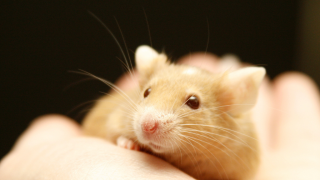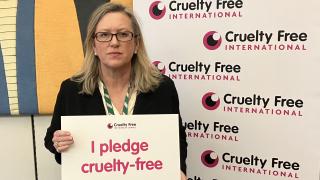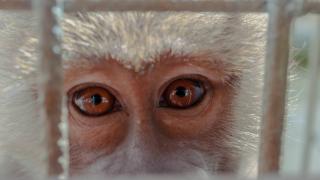How our science team saves animals’ lives
Last month’s success with ending the Draize test for chemicals testing in the EU was the latest in a series of triumphs for our science team. Following consistent pressure from our team, the European Commission finally updated the REACH chemical legislation to delete the requirement for the Draize rabbit skin and eye irritation tests. Alternatives to these notorious tests, which have been available for many years, must now finally be used. We estimate that 18,000 rabbits may now be spared. No more excuses.
Working with regulators and using the expertise of our legal team, we aim to ensure that once alternatives have been validated they are actually accepted and replace the animal tests they are supposed to. We play an important role encouraging regulators to speed up the bureaucratic process and ensure specific animal tests are no longer conducted. We meticulously follow developments in alternatives and provide evidence to the relevant regulatory bodies that they need to act. We strongly believe that without our small team of experts some animal tests would still be conducted today were it not for our evidence and pressure.
Here are some of our other achievements last year that will have a direct impact on animals:
We intervened in a successful legal appeal of an animal test demand by the European Chemicals Agency. The Board of Appeal overturned the Agency’s decision to insist on a cruel test that would have required at least 1,000 rats to be used in a reproductive toxicity test on carbon tetrachloride. Some of the rats would have been forced into narrow tubes to inhale this toxic substance.
The European Ombudsman upheld our complaint about the European Chemicals Agency. She agreed with us that the European Chemicals Agency must reject an animal testing proposal if there is an alternative way of generating the data, or if the company has not given this sufficient thought. The Agency are now asking companies to explain why they have not used alternative methods when they submit a proposal to test on animals. If their approach is thorough then this should save thousands of animals.












